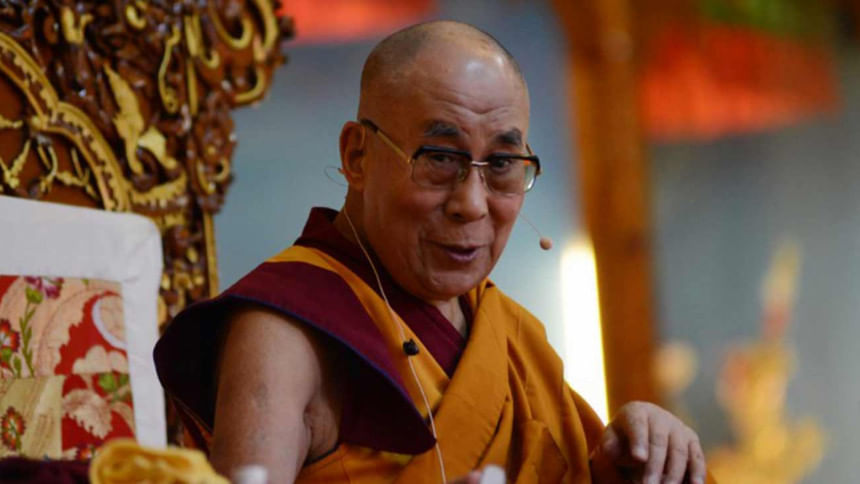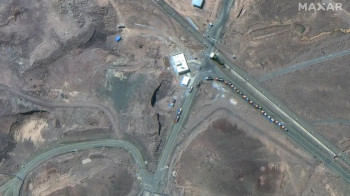Dalai Lama urges Suu Kyi to act on Rohingya

The Dalai Lama has urged fellow Nobel peace laureate Aung San Suu Kyi to do more to help Myanmar's persecuted Muslim Rohingya minority amid a worsening migration crisis.
Despite thousands of Rohingya fleeing on harrowing boat journeys to Southeast Asia to escape poverty and discriminatory treatment by the country's Buddhist majority, opposition leader Suu Kyi is yet to comment.
Observers have attributed this to fears about alienating voters ahead of elections slated for November.
The Tibetan Buddhist spiritual leader said she must speak up, adding that he had already appealed twice to her in person since 2012, when deadly sectarian violence in Myanmar's Rakhine state pitted the Rohingya against local Buddhists, to do more on their behalf.
"It's very sad. In the Burmese (Myanmar) case I hope Aung San Suu Kyi, as a Nobel laureate, can do something," he told Thursday's The Australian newspaper in an interview ahead of a visit to Australia next week.
"I met her two times, first in London and then the Czech Republic. I mentioned about this problem and she told me she found some difficulties, that things were not simple but very complicated.
"But in spite of that I feel she can do something."
The issue was thrown into the spotlight this month when thousands of Rohingya, together with Bangladeshi migrants, were rescued on Southeast Asian shores after fleeing by boat.
The crisis has shone a spotlight on the dire conditions and discrimination faced by the roughly one million Rohingya in western Myanmar, a group widely seen as illegal immigrants from Bangladesh.
The Dalai Lama, perhaps the world's most famous refugee, added from his exile in the Indian Himalayas that it was not enough to ask how to help the Rohingya.
"This is not sufficient. There's something wrong with humanity's way of thinking. Ultimately we are lacking concern for others' lives, others' well-being," he said.
Malaysia has been a favourite destination for the Rohingya. Migrants often travelled to Thailand by boat, then overland to northern Malaysia.
But Thailand began a crackdown on smuggling following the discovery of mass graves there, which appears to have thrown regional human-trafficking routes into chaos.
More than 3,500 migrants have arrived on Thai, Malaysian and Indonesian soil in recent weeks, and hundreds or thousands more are feared still trapped on boats.
Seven camps -- some with dozens of graves believed to contain the bodies of Rohingya -- have been uncovered in Thailand's Songkhla province close to the Malaysian border.

 For all latest news, follow The Daily Star's Google News channel.
For all latest news, follow The Daily Star's Google News channel. 



Comments